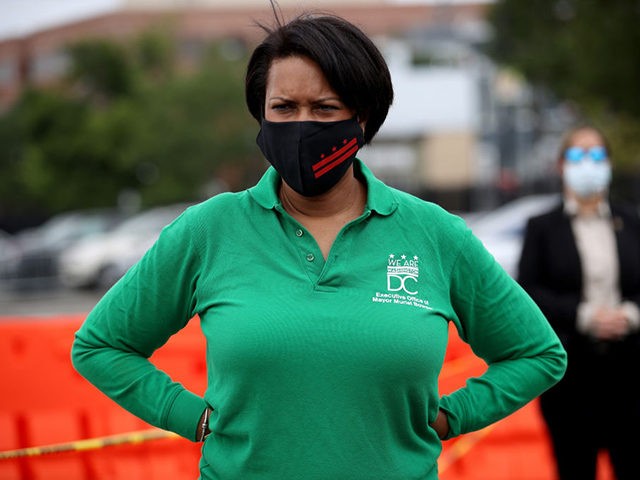Capitol Hill Baptist Church is suing Washington, D.C., for restricting worship services over coronavirus concerns while allowing large groups to roam the city’s streets and camp on sidewalks and in parks.
For months the streets of Washington, D.C., have been filed with social justice protesters. Some have destroyed property, looted businesses, and injured police officers sworn to protect the public. But Mayor Bowser has clamped down on other gatherings including church services, which must limit the number of people in attendance, as part of the effort to prevent the spread of the coronavirus.
Why do Christians gather? We believe this is core to who we are as a church.https://t.co/9EIJJId2cu
— Capitol Hill Baptist Church (@chbcdc) September 23, 2020
Mark Dever, the pastor at Capitol Hill Baptist — a 1,000 member congregation — argues in the lawsuit that Bowser’s restrictions are unconstitutional by infringing on citizens’ rights to assembly and exercise religion that are protected under the First Amendment of the Constitution.
The D.C. restrictions currently allow only 100 people to gather inside a church or fewer, depending on the size of the building.
Christianity Today reported on the lawsuit and the church, noting that while other churches have challenged lockdowns, most prominently in California, Dever’s church does not have online services and provides just one service for all members to attend in person, as dictated by their doctrine:
As noted in the lawsuit filed Tuesday, “Gathering as one church in a single worship service is an essential component of [Capitol Hill Baptist]’s exercise of religion.”
Capitol Hill Baptist canceled services from mid-March through early June. At that point it began meeting in a field beside a fellow Baptist congregation in Virginia.
On Tuesday, Capitol Hill Baptist, which has not publicly addressed the suit, posted a clip about the importance of church gatherings.
“Ultimately, the church is not something we want to be in as a building,” Dever, speaking from the empty sanctuary in the spring, said. “It’s a people we want to be with. That’s why we Christians always gather, so that we can be with the people of God and do the things that Jesus has called us to do.”
“I might not be feeling as compliant as I am if Virginia weren’t just across the river with all their freedoms,” Dever said in late June, discussing the decision by [Rev.] John MacArthur to defy California’s restrictions. “We’ve been able to have hundreds of our members gather legally, and we’ve done it with social distancing — which I think the governor of Virginia is requesting — and with masks — which I don’t think is in the rules but we’re doing it anyway for an abundance of caution.”
The Washington Post also reported on the lawsuit and similar cases in Virginia and Maryland:
“The Church takes no issue with Defendants’ decision to permit these gatherings, which are themselves protected by the First Amendment, and the Church supports this exercise of First Amendment rights. The Church does, however, take exception to Defendants’ decision to favor certain expressive gatherings over others,” the suit said. “The First Amendment protects both mass protests and religious worship. But Mayor Bowser, by her own admission, has preferred the former over the latter.”
The [lawsuit] in Virginia comes from the Lighthouse Fellowship congregation, a small church that filed in April after the pastor was issued a citation for holding a service with 16 people on Palm Sunday, according to the lawsuit. A federal judge denied the church’s initial challenge to Gov. Ralph Northam’s coronavirus order, and the decision is on appeal to the 4th Circuit. The U.S. Justice Department wrote a “statement of interest” in favor of the church, located on Chincoteague Island, saying Lighthouse’s First Amendment rights have been abrogated.
In Maryland, a federal lawsuit is pending involving multiple parties including nine churches, said Tim Walters, head of the group Reopen Maryland. The federal district court denied the group’s initial request, and now a U.S. District Court judge is considering the state’s motion to dismiss it.
“The First Amendment doesn’t give us a right to meet, it constrains Congress and the governor from getting into it,” Walters said. “Scripture calls us to be in fellowship, and watching it on YouTube isn’t fellowship.”
Follow Penny Starr on Twitter

COMMENTS
Please let us know if you're having issues with commenting.